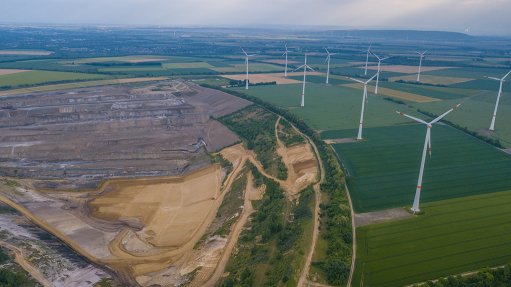
SECTOR CHALLENGES Sweeney says ESG-related changes will require companies to rethink old processes and take some big swings on emerging technology
The Australian mining industry is facing hampered growth owing to domestic and global system backlogs.
With ESG now a non-negotiable in the sector, explorers are having to quickly adapt to changing policy and guidance with miners now focusing on their environmental, social and corporate governance (ESG) interests to keep stakeholders invested and projects moving forward, says Australian engineering consultancy firm MEC Mining strategy and growth senior manager Erin Sweeney.
“When we look at trends for spend and for meters drilled, exploration had, at one stage, been steadily growing, but it now appears to be plateauing as there is less investment money with the inflationary and interest pressures in the system. While the net effect is largely a positive change for the industry, ESG-related policy and market expectation changes will require companies to rethink old processes and take some big swings on emerging technology in both operating and new projects,” says Sweeney.
A societal embrace of ESG and the transition to net zero means that mining companies will need to turn their focus on navigating and complying with new ESG policies to attract and retain investors, shareholders and stakeholders for their projects.
Consequently, mining companies are emphasising decarbonisation efforts.
However, Sweeney warns that a “green-washing approach” to compliance – companies marketing themselves as being environment-friendly without taking the necessary steps to implement effective initiatives – can, conversely, increase companies’ carbon footprints.
“Green washing or implementing green technology without first understanding the baseline of your energy consumption needs, may provide no net benefit for significant cost and, in some cases, we have witnessed it actually adding to, rather than subtracting from, the carbon footprint. “The crucial starting point for all individual projects is running scenario models that provide insights into the technological solutions that will turn the dial on emissions,” she explains.
Sweeney also highlights a softening in the market – which is linked to high inflation, with indications of a global recession – as another challenge. This could, consequently, compel players in the industry to implement cost management and reduce system excess on projects moving forward.
“We are going to see projects reviewed for efficiency to see if they are still able to make viable cash flow,” she elaborates.
The third major challenge is the introduction of automation and the Fourth Industrial Revolution, with both requiring that mining firms have a granular understanding of their value chain and how to implement appropriate solutions.
Sweeney says this will likely impact on the junior and emerging tiers of the industry as technology becomes more mainstream and affordable.
The introduction of automation and artificial intelligence requires that mining firms know how to use the technology to efficiently organise big data.
“When shifting mindsets goes from focusing on doing to focusing on using data-based decision-making, the challenge is ensuring that decision-makers aren’t overwhelmed. Organising data so that it tells a value story is critical – all the data in the world won’t save you if you don’t act on it. Knowing what ‘good’ looks like is critical – knowing how to act on Big Data is game changing,” she adds.
Consulting Benefits
As mining consultants have a broader scope in the mining industry, Sweeney says companies that use their services can benefit from the experience of numerous consultants across multiple commodities, companies, projects and sites.
She adds that this benefits mining companies by providing a diverse range of thinking, with consultants helping to efficiently kickstart projects without increasing the headcount or having to deal with in-house bias or conflicts.
“Our clients often face problems for which they may not have the wide range of skills to solve. “Outsourcing is a great way of introducing new ideas and expertise that can give you a competitive advantage. In-house firms can’t compete with this level of exposure and the benefit it brings in producing outcomes that are outside the firm’s corporate knowledge base.”
Hence, MEC Mining offers technical services that provide a holistic overview for a project, thereby ensuring that its clients do not have to switch between firms when the project progresses through the many and varied stages of development and operation.
In addition to operating in Australia, MEC has also taken up projects on multiple international fronts, including in Africa.
The company has completed a project focused on ESG, from an equipment selection and procurement perspective, with gold mining company Gold Fields at its Tarkwa and Damang sites, in Ghana.
The company is also assisting diversified West African conglomerate African Industries Group with its exploration requirements.
“It is not uncommon for MEC to have a team of engineers embedded at African sites, assisting with leading, training and developing local teams as we did for global resources company MMG at its copper mine Kinsevere, in the Democratic Republic of Congo,” says Sweeney.
The company specialises in mine engineering, geology, geotechnical engineering as well as exploration services, and is leveraging its experience by applying it to emerging challenges in advisory and ESG spaces.
“Our skilled team of mine management and operational readiness engineers are assisting many of our international clients in building good governance and best practice into local teams to not only upskill them but also ensure that the sites are exploiting world-class assets sustainably,” she concludes.